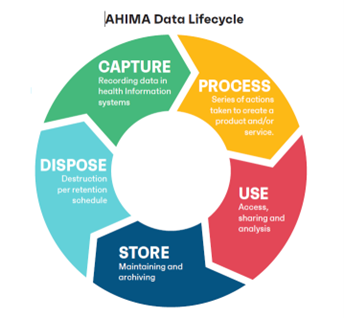According to a research paper published in the National Library of Medicine, large clinical data sets are not integrated and therefore are ‘unorganized, missing, and inadequate’ for clinical research. This makes analyzing and interpreting that data even more challenging. Additionally, due to healthcare regulations data compliance is another big challenge for the industry, and individual healthcare facilities are not focused on making data accessible and available for research. Therefore, having a data governance strategy to ensure the accessibility of data while keeping in mind compliance regulations is key.
At To-Increase, we offer solutions for data management from integration to analytics for Microsoft Dynamics 365 Finance & Supply Chain Management ERP and we understand the importance of data governance. We have built our data governance solutions over the last few years based on customer challenges. And we can help organizations with managing data quality, data entry, master data management, security, and integration.
In this blog, we will explain the importance of data governance for healthcare, its meaning, and its benefits.
What is data governance in the context of healthcare?
It is possible that a healthcare organization, let’s assume Company H, has duplicate records, is using outdated EHR (electronic health records) templates, lacks a set of guidelines for data access, and lacks a centralized asset inventory. All of these issues and more can be addressed with a tailored data governance strategy.
Data governance can be defined as a set of guidelines that dictates how data needs to be created, accessed, validated, stored, monitored, updated, shared, and deleted/archived across the organization. Therefore, data governance “involves the strategy, the people, the tools, and processes involved in data management”.
Data governance is an ongoing practice that is set up with management buy-in with a cross-functional team, clearly outlined processes, using tools to execute the data governance strategy. It helps organizations improve their data quality by keeping in mind precision, definition, currency, comprehensiveness, accessibility, accuracy, granularity, consistency, relevancy, and timeliness of data according to the American Health Information Management Association (AHIMA). Once they have derived their one source of truth, organizations can seek to derive powerful business insights from their data. That is the journey that a robust data governance strategy helps organizations make.
Going back to the Company H example, a data governance strategy that ensures there are rules that can track duplicates, policies for data access, a mandate for a standardized and globally accepted standard/template, and a centralized and monitored inventory tracking system will help the organization resolve their current challenges.
A data governance strategy in the context of healthcare helps organizations manage data from the time a patient’s information is first entered in the system until after they are discharged. The kind of data involved are prescriptions, tests, patient’s personal details, medical history, payments, research, lab tests, and municipal reports (in case of Covid 19 or viruses/diseases that are contagious).
Having a stringent data governance strategy helps healthcare organizations ensure compliance of data in line with patient data privacy laws while also having good data quality for analysis later. Healthcare professionals can rely on data in the EHRs and patients can trust the institution to keep their private data safe as access is allowed only to authorized medical professionals. A data governance strategy also improves the process from diagnosis to research. In the case of individual patients, having access to their medical history and examining symptoms can help doctors provide better diagnoses and in the case of larger data sets, a spike in a virus can help healthcare specialists understand the common and unusual symptoms seen in patients and share warnings for better healthcare.
Why is data governance important in healthcare?
The volume of data is steadily spiking, new viruses and illnesses are surfacing, with developments in technology, and higher customer expectations, the need for improved efficiency, are just some of the reasons why data governance is becoming a crucial practice for the healthcare industry.
As the volume of data exponentially increases it also makes security and privacy more challenging to manage. Additionally, incorrect and duplicate information due to the lack of integration and data quality rules make the data unreliable for healthcare professionals to act on. Therefore, data governance requires the involvement of a cross-functional team that is identified from across the organization. This also makes the adoption of the data governance framework easier and increases the chances of success. The team has to ensure that data is reliable, secure, and accessible for authorized team members.
In order to benefit from data governance and reach their goals of improved analytics and business insights, organizations need to treat data as a product that needs to be managed at each stage of the data lifecycle. According to AHIMA, there are 5 stages in the data lifecycle in the healthcare industry which are: capture, process, use, store, and dispose.

Source: AHIMA (paper titled: Healthcare Data Governance)
An organization’s data can consist of different types of data that is structured and unstructured in each of these stages. Metadata and reference data help provide structure to the master data in the healthcare management system/s. Adopting a data governance framework based on industry best practices can help you make the most of your data when used as an asset to the business.
The bottom line here is that data governance in healthcare is not just an option but a necessity as it is paramount for caregivers and the management to have the correct data in time to provide the required medical attention to their patients and make impactful business decisions.
What are the benefits of implementing data governance?
Organizations can use healthcare data to improve efficiency and cost, and enhance the diagnostics, insurance, and other medical processes. Let’s look at some other benefits in detail.
Improve customer experience: When patient data is integrated across systems, then a holistic picture can be provided to the healthcare staff that can provide quicker feedback and diagnosis while improving the patient’s experience.
Improved data quality: If healthcare providers provide patients the option to select data accessibility terms and also have guidelines for data access and data entry, it will improve the quality of the data and boost patient confidence toward their selected healthcare providers.
Improved data accessibility for research: When healthcare providers can provide available patient data to authorized teams for research, it can benefit the population and make it easier to validate larger data sets for research.
Establishing standard nomenclatures for better insights: When healthcare providers use globally accepted and widely used industry standards for electronic transactions such as HIPAA, it makes it easier and more secure to access information in one place or system such as the ERP system. This makes it easier for reporting and drawing insights later.
Making data available at the right time: Timing is key in the healthcare industry as the demands for physicians at certain points can be very high, for example in the middle of an epidemic or due to a natural disaster. Therefore, the information needs to be available at the time of need through easy methods of access on the go for healthcare providers.
Reduce costs and increased efficiency: With established data governance guidelines, there will be fewer resources and time spent on cleaning and analyzing data which can significantly reduce costs and increase efficiency.
Are you interested in data governance for your organization?
While data governance is an ongoing practice, it might be best to phase it out and take small steps with management buy-in. A good starting point is to identify the right team members across teams that can understand and leverage clinical, technical, financial, and administrative data. Your data governance team can then consider some data governance best practices and start working on a data governance framework.
The success of any data governance project depends on the adoption of the data governance policies and procedures therefore constant communication with the rest of the organization throughout the process is important. This will include a top-down and bottom-up approach so that you can communicate policies and note down feedback. This exercise will help you reassess if your organization needs to make any changes in its data governance strategy. Another important measure of tracking success is to establish metrics that will help you understand whether you are on the right track or not.
We know how overwhelming data governance can be and the reason most organizations put it off is because they do not know where to start. We have a free data governance e-book that can help you take the first step in the right direction. Click on the link below to download it.

.png)



